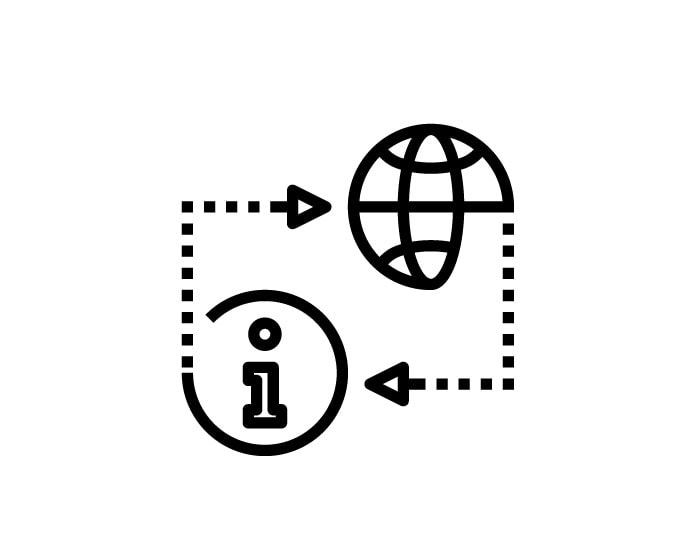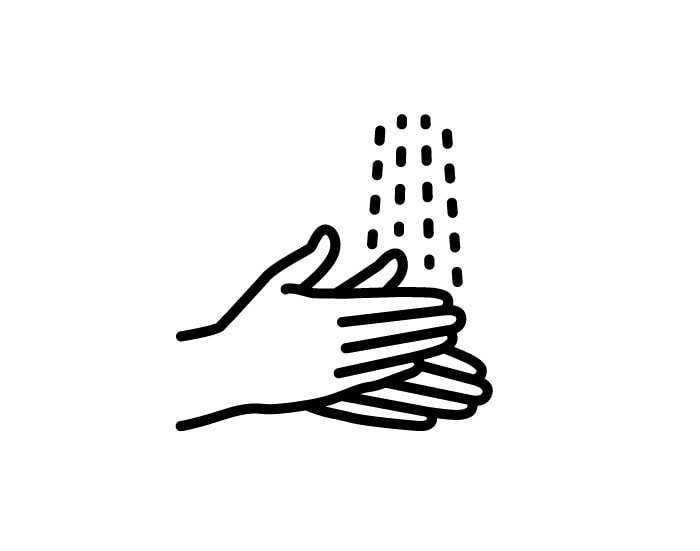13th March, 2020
Dr Rebecca Koomen
Share
7 things to know about human psychology when dealing with the Coronavirus
What is the right way to respond to Covid-19? What is the right amount of panic? And precaution? How about the right amount of calm adherence to normalcy?
Because the Coronavirus is new, it is presenting us with a somewhat novel behavioural situation. The virus is spreading at different paces in different places, and countries around the world are producing highly variable responses to the pandemic.
Our species evolved to adapt to wildly different climates and landscapes primarily by learning from others. When presented with new challenges, our best bet is usually to look at how others around us are coping, and to copy their behaviour. In fact, much of human behaviour is influenced by what we believe about the behaviour of those around us. Just as early humans colonising the arctic would have learned from each other to keep warm and fish through ice, now our current population will look to neighbours and peers when deciding how to deal with the Coronavirus. But what if we face a challenge so new that no one really knows yet what the ‘best’ response is, or what if some do and others do not? How do we know who to copy? With the corona virus pandemic, how can we know what to believe and how to behave?
We have evolved to follow norms of behaviour, and yet we find ourselves in a situation for which there are no established norms – or rather, novel norms are developing to a novel situation, and knowing which ones to follow may not be easy. For example, in the past three days I have experienced a shocking range of responses and beliefs about the Coronavirus. Some people decide to self-isolate because they chatted with someone a week ago who is married to someone who may have been exposed. Others continue to travel to and from work, business-as-usual, despite having a nagging cough, seemingly unaware of the global confusion and hysteria. Some stock up on non-perishable foods as if to prepare for months of exile, while others stir disbelief, comparing the virus to a glorified cold that one ought not over-react to.
On an individual level, knowing how to respond without any clear societal consensus or established norms to guide behaviour, especially when things in our surroundings are changing on a daily basis, can be difficult. Here are seven aspects of human psychology we think will be helpful in deciding how best to respond to the corona virus.

1. People are generally bad at mentally tallying the accumulation of large numbers
As more and more confirmed cases of the Coronavirus accumulate, being able to understand these growth rates may help people to understand the enormity of the pandemic and plan accordingly. But being able to grasp accumulation patterns at scale turns out to be something that eludes even the most highly educated of us. In a study conducted with postgraduate students on the MIT campus , researchers asked participants to draw the growth trajectory of an accumulating atmospheric element and found that most students’ responses violated the laws of accumulation. The majority of responses made the same mistake: the logical equivalent of predicting that a bathtub, filling with water twice as fast as the water is able to drain out again, will never overflow, which is physically impossible. If these responses can be generalised to the wider population, it seems our ability to accurately understand accumulation patterns may lead many to underestimate the speed and size of accumulating cases around them. Combine this phenomenon with the fact that, at any given time, we only know the numbers of confirmed cases, not the number of true (i.e. untested, un-symptomatic, or pre-symptomatic) cases, and this could cause us to significantly underestimate the spread of the Coronavirus where we are.
2. People are generally optimistic when predicting the future
Responding quickly and effectively to the Coronavirus requires accurately anticipating its severity. For example, government officials in a country with few confirmed covid-19 cases need to act quickly to contain the infection and mitigate the size of the spread. Similarly, all of us will face decisions about whether or not to go on with our daily lives as planned or to practice social distancing by staying home – Should I cancel the party I planned? Should I go to the concert I bought tickets for? Should I work from home even if my company does not yet require it? But, in order to make these decisions today in a way that minimises the spread of Coronavirus, we need to have an accurate understanding of how bad things are likely to get tomorrow, next week, and next month. The problem is, as a species, we are highly prone to optimism when estimating the likelihood that we will face risk in the future. For example, we already know the probability of someone suffering a car accident, getting a divorce, or perishing from most types of cancer. Yet, when asked, we consistently underpredict the likelihood of meeting one of these fates in favour of overestimating positive outcomes. We should keep this tendency in mind when deciding how severe our response should be in preparation for what is to come.
3. People are generally over-influenced by recent news from our surroundings
The effects of a cognitive heuristic we all share, the recency bias, lead us to think of things that just happened as more representative of reality than things that happened further back in time. So, when we are trying to make sense of the barrage of news articles, rumours, stories, and ideas about the Coronavirus and how to respond to it, we are likely to be a bit too highly influenced by stories we have heard recently than stories we heard, say, last week or last month. This bias has already steered the thoughts of citizens. Consider the UK: This past week, it was not uncommon to hear disparaging rumours of how dire things are in Italy compared to the UK. But people overlook the fact that Italy had a similar number of cases as the UK only a few short weeks ago. Were we to be free from the recency bias, we here in the UK would consider Italy’s progression more as a forewarning. We would also be more likely to withhold judgement of other countries’ responses, because if their past looks like our present, we should instead be looking to them to learn.
4. We misperceive risk depending on how it is communicated
Generally speaking, our skills for perceiving the probability of future risks are overly influenced by the language with which risks are communicated. There is a wealth of scientific findings on this tendency. One recent study showed that people perceived the likelihood of dangers quite differently if they were described in terms of frequencies (as in, ‘one in ten’) instead of proportions (as in, ‘10%’). Specifically, if a risk was described in terms of a frequency, people perceived the danger as being more probable, presumably because it is easier to imagine a real risk if it is ‘one’ among a line of ‘ten’ than it is to imagine the risks coming from a somewhat more abstract ‘10%’. This means that the language used by health officials to announce illness rates can have a significant impact on how the population (i.e. us) interprets the level of danger.

5. People tend to underestimate how much they will value things in the future
Temporal discounting is a behavioural economics term that describes a common psychological phenomenon, in which people predictably fail to properly estimate how much they will care about something when it is reaped in the future instead of the immediate present. For example, if I offer you £10 today, or £100 in three years, there is a good chance you will go for the immediate choice, rather than wait for the larger amount. We can see the same thing occurring with the Coronavirus. According to Tomas Pueyo, containing the spread of the virus requires fast and deliberate action by governments, businesses, and individuals. Specifically, he argues, we need to practice as much social distancing as possible, as quickly as possible. “These measures require closing companies, shops, mass transit, schools, enforcing lockdowns… The worse your situation, the worse the social distancing. The earlier you impose heavy measures, the less time you need to keep them.” But a response of this kind requires deciding to pay a heavy social and economic price now in order to give ourselves a healthier future, and that is rather difficult to do given our strong tendency to undervalue future rewards, especially if they require paying a price right now. Says Pueyo, “One approach is to gradually increase measures. Unfortunately, that gives precious time for the virus to spread. If you want to be safe, do it Wuhan style. People might complain now, but they’ll thank you later.”
6. Prior beliefs and cultural perspectives will shape responses to threat in ways that may appear ‘tribal’
We are a group-dwelling species. We like our own groups, usually more than groups that are not our own. It is commonly believed among scientists of human behaviour that our tendency to favour our in-groups and disfavour our out-groups is heightened when we perceive that we are under threat. This is a phenomenon known as parochialism. It is this very tendency that can lead us to more harshly punish people from a different racial, ethnic, or linguistic group, than our own. Unfortunately, we can already see signs of this tendency rearing its ugly head as news stories pop up describing outright racism towards people of Asian descent in the United States and in the UK. As we move forward with protecting ourselves and those around us from the threats Coronavirus poses, let us all try to avoid the pitfalls of our evolved psychologies by not letting this pandemic divide us in socially unhealthy and politically unnecessary ways.
7. With so much uncertainty and misinformation, who people choose to trust may come down to gender, race, religion or political affiliation
In a perfect world, we would all have all the right information at all times. We could recognise fake news, immediately see through scams, and we would all uniformly take medical advice that is readily available and consistent from our doctors. However, with the spread of the Coronavirus pandemic, not all messages we are receiving are created equal, and knowing which ones to trust may not always be easy. Unfortunately, our parochial leanings come alive not just in conditions of threat, but also in cases of uncertainty, and if this pandemic can be characterised by anything, it is a large degree of uncertainty.
When we lack complete information, we predictably rely more heavily on social biases to judge the trustworthiness of informants. Here is an example: Imagine someone who normally harbours no discriminatory beliefs. Let’s call her Mary. Mary is an immigrant trying to protect herself from the Coronavirus. She reads conflicting news articles on the internet, she hears conflicting messages from friends and family, and she does not have enough medical knowledge of her own to be able to differentiate accurate medical advice from fake news. Then imagine that Mary has to decide between the inconsistent advice of two people she has never met. One is the health minister from her home country, and one is the health minister from the country in which she is a resident. Without further information to help decide who is giving beneficial advice and who is giving misleading advice, Mary is likely to use broad social categories to help her decide. This means she may be more likely to trust the advice of the health minister that looks like her, or the one who prays like her, over the advice of the health minister who is different from her.
Knowing how to behave and what to believe in a constantly evolving global crisis is understandably difficult. As you navigate the coming days and weeks, we at The Behaviouralist urge you remember that your decisions affect not only you, they affect those around you too – just as the decisions of those around you affect you. In a time when we may feel pressure to buy all the remaining toilet paper to outcompete our neighbours, let us all remember that we are interdependent. Our actions can harm or help those around us; the more people who choose to help others by washing their hands and socially distancing themselves, the better the outcome for us all.

